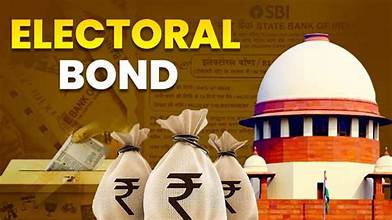In recent years, electoral bonds have emerged as a significant topic in the realm of political financing in India. With a staggering INR 9,188 crore received by various political parties through this scheme, it becomes imperative to delve deeper into its intricacies and implications. Let’s unravel the mysteries surrounding electoral bonds and their implications on political funding.
The Genesis of Electoral Bond Scheme
Understanding the Background and Objectives of Electoral Bonds
The electoral bond scheme was introduced by the Government of India in 2018 with the aim of cleansing the system of political funding. It was envisioned as a transparent and legitimate way for individuals and companies to donate money to political parties without revealing their identities. The government argued that this anonymity would protect donors from harassment or retaliation and encourage more significant participation in the political process.
How Electoral Bonds Work
Unveiling the Mechanisms Behind Electoral Bonds
Electoral bonds are essentially promissory notes that can be purchased from specified branches of authorized banks. These bonds can then be donated to registered political parties, who can encash them through their designated bank accounts. One of the key features of electoral bonds is the anonymity they provide to donors, as their identities are not disclosed to the public or the receiving political party.
Criticism and Concerns
Addressing the Controversies Surrounding Electoral Bonds
Despite the government’s intentions, the electoral bond scheme has faced significant criticism from various quarters. One of the primary concerns raised by critics is the lack of transparency inherent in the scheme. Since the identity of the donors remains undisclosed, there are fears of potential misuse and corruption. Additionally, there are apprehensions that the scheme favors the ruling party by providing them with a disproportionate share of funds.
Political Parties and Electoral Bonds: A Deep Dive
Exploring the Beneficiaries of Electoral Bonds
A recent report revealed that political parties across the spectrum have received substantial amounts through electoral bonds. The ruling party, as expected, emerged as the biggest beneficiary, garnering a significant portion of the total funds. However, opposition parties have also availed themselves of this mechanism to finance their electoral campaigns. This raises questions about the impact of electoral bonds on the level playing field in Indian politics.
Transparency vs. Anonymity
Balancing the Need for Disclosure and Privacy
The debate surrounding electoral bonds ultimately boils down to a clash between transparency and anonymity. While anonymity protects donors from potential repercussions, it also undermines the transparency and accountability essential for a healthy democracy. Striking the right balance between these competing interests is crucial for ensuring the integrity of the political financing system.
Reforms and the Way Forward
Proposing Solutions to Enhance Accountability
In light of the criticisms leveled against the electoral bond scheme, there have been calls for reforms to make the system more transparent and accountable. Some experts advocate for disclosing the identities of donors above a certain threshold to prevent abuse of the system. Others suggest strengthening regulatory mechanisms to monitor the flow of funds and prevent illicit activities.




